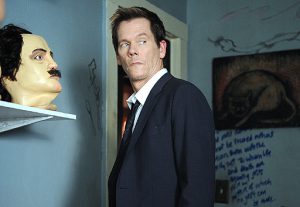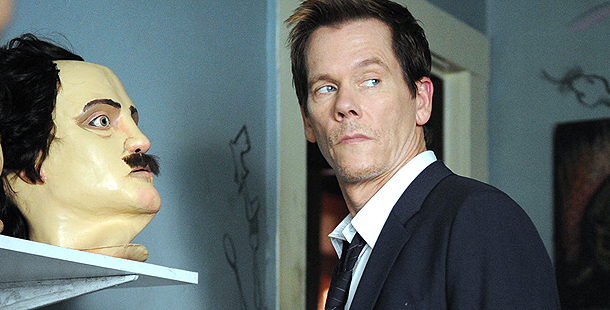
What freaks out a culture that is desensitized?
How do you get inside the head of people through words? How do you develop tension with the simplest of ease?
Sometimes the answer to all these questions is to return to the original tropes that spawned a genre. The basics.
I’ve been reading a lot of the forefathers (and mothers) of horror. The writers that unintentionally took the supernatural and extrapolated such phenomenal tales as “The Tell-Tale Heart”, “Chickamauga” and “The Call of Cthulhu”.
When I really like a movie, book or a TV series there’s a little chill that surges at the back of my neck. That’s been a “spider-sense” I’ve had whenever I find something that motivates my imagination. It also answers the question, “What if?”
Which brings me to Kevin Bacon. We all know there are at most six degrees of separation between anyone in the media. Just Google “bacon number” and any personality.
Anyhow, I’m hooked on the television show “The Following”, which stars Bacon. Perhaps its airing is serendipitous. I’ve been reading old Victorian and American Gothic literature. And Poe plays a big role in the acolytes of a serial killer.
But it hits that aforementioned spider-sense. And gives me ideas on what the zeitgeist of horror is.
In a world so deeply entrenched in science, what was once supernatural, say in Nathaniel Hawthorne’s time, is now solved. There was a shift in literature during the 1960s to the more cerebral, psychological thriller.
The book I wrote about earlier in the year, American Supernatural Tales, has taken me through the U.S. annals of horror writers. I’ve gone through Washington Irving, Hawthorne, Edgar Allan Poe, Fitz-James O’Brien, Ambrose Bierce, Robert W. Chambers, Henry James, H.P. Lovecraft, Clark Ashton Smith and Robert E. Howard.
Next up, Robert Bloch.
Even though the paranormal these days is snickered at on reality television shows, or with further advancements in science are rendered impotent, it’s all the more reason to go back to basics.

